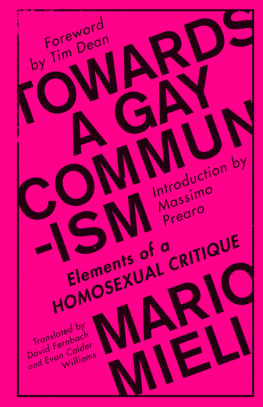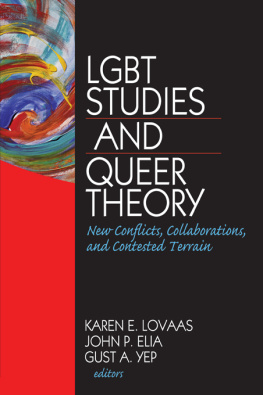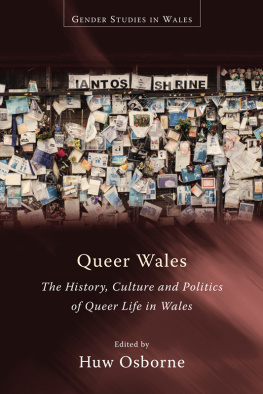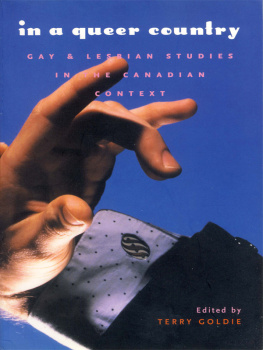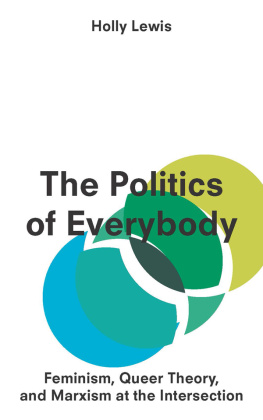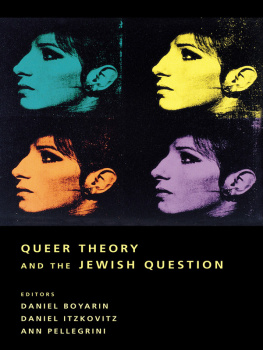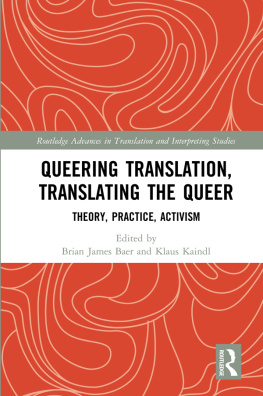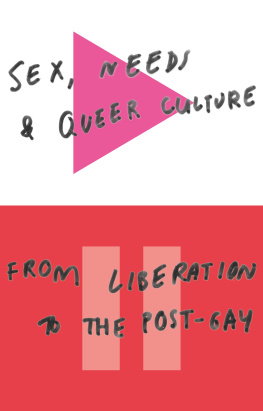Contents
Guide
Towards a Gay Communism
#&<>
Towards a Gay Communism
Elements of Homosexual Critique
Mario Mieli
Translated by David Fernbach and Evan Calder Williams
Introduction by Massimo Prearo
Foreword by Tim Dean

First published as Elementi di critica omosessuale in 2002 by Giangiacomo Feltrinelli Editore, Milan, Italy
This edition first published 2018 by Pluto Press 345 Archway Road, London N6 5AA
www.plutobooks.com
Copyright Giangiacomo Feltrinelli Editore, 2002; revised English translation
David Fernbach and Evan Calder Williams 2018
British Library Cataloguing in Publication Data
A catalogue record for this book is available from the British Library
ISBN 978 0 7453 9952 2 Hardback
ISBN 978 0 7453 9951 5 Paperback
ISBN 978 1 7868 0053 4 PDF eBook
ISBN 978 1 7868 0055 8 Kindle eBook
ISBN 978 1 7868 0054 1 EPUB eBook
This book is printed on paper suitable for recycling and made from fully managed and sustained forest sources. Logging, pulping and manufacturing processes are expected to conform to the environmental standards of the country of origin.
Typeset by Stanford DTP Services, Northampton, England
Simultaneously printed in the United Kingdom and United States of America
Contents
Foreword
I Keep My Treasure in My Arse
Tim Dean
Rereading Mario Mieli today, I am catapulted back to the time when I first encountered his manifesto, published then in an abridged version under the title Homosexuality and Liberation by Londons Gay Mens Press in 1980. I read Mieli alongside other works of gay liberation, psychoanalytic theory, and feminism during those heady days of university in the late eighties. AIDS cast a shadow, but not dark enough to obscure the radical ideas that were expanding the consciousness if not completely blowing the mind of this first-generation college student from the provinces. Mielis book wasnt part of any syllabus; there were no gay studies or queer theory courses at universities in those days though there would be soon. We were gearing up to invent queer theory, and Mieli offered a template for how it might be done. Yet because queer theory turned out to be Made in America, its European history was largely erased. Reconsidering Towards a Gay Communism now, in this unabridged English translation, provides an opportunity to rewrite the origin myth of queer theory and politics in a more international frame.
Although I was unaware of it then, the world from which Mielis book emerged had vanished almost completely by the time I came upon it and Mieli himself had committed suicide in 1983. The 1980 English edition gave no hint of these changes. Nothing dates Towards a Gay Communism more than its unavoidable ignorance of AIDS, which initially gained medical notice in 1981 but was not named as such until a year later. The onslaught of the epidemic and the reactionary political climate of the eighties altered gay liberations trajectory in ways Mieli couldnt have predicted or foreseen. In hindsight, the divide between pre- and post-liberation eras of gay existence (conventionally denoted by the date June 1969, when drag queens and others fought back against police persecution at New Yorks Stonewall Inn) was matched barely more than a decade later by the chasm that opened between pre- and post-AIDS epochs of gay life. Mieli wrote during that glorious decade of gay liberation, when so much seemed newly possible. His book is a testament to an era that already felt a lifetime away for gay men of my generation, who came of age during the eighties and thus never knew sex without the attendant pressure of mortality. Having no direct memory of sex in the seventies, I remain fascinated by accounts such as Mielis that capture those years so ebulliently. Towards a Gay Communism documents a crucial historical moment, at the same time as it offers fresh inspiration for us today.
Mieli articulated something that has mostly got lost in contemporary queer theory: the foundational significance of sex. He put his finger on the cultural antipathy towards anal sex an antipathy that the AIDS epidemic intensified, that Leo Bersani analysed ten years after Mieli, and that paradoxically, queer theorys newfound respectability has compounded:
What in homosexuality particularly horrifies homo normalis, the policeman of the hetero-capitalist system, is being fucked in the arse; and this can only mean that one of the most delicious bodily pleasures, anal intercourse, is itself a significant revolutionary force. The thing that we queens are so greatly put down for contains a large part of our subversive gay potential. I keep my treasure in my arse, but then my arse is open to everyone...
The most marvelous thing about Mieli is that he really seems to mean open to everyone. Although the HIV/AIDS epidemic cast a pall over the original joie de vivre of such sentences, Mielis stance embraces risk even without the spectre of viral transmission. The risks of bodily porousness and radical openness to the other remain, both before and after AIDS. Appreciating the ethics of Mielis stance, we should not miss how playfully flirtatious his punctuation is here. The ellipsis that ends the last sentence quoted above and, in fact, closes the chapter in which this passage appears issues a provocative invitation: my arse is open to you too, if youre interested. He leaves the sentence open-ended to signal that his own rear end stays open. His butt offers a welcoming smile to the reader.
This gesture of openness to all comers betokens Mielis radically democratic ethos. The socio-erotic economy he envisions under gay communism is about not sexual identity but erotic abundance, a world in which artificial sexual scarcity would be unknown. Based on a liberationist model of queer sexuality, Mieli drastically redefines communism as the rediscovery of bodies and their fundamental communicative function, their polymorphous potential for love. In this almost Bataillelike communication of material forms, human corporeality enters into egalitarian relations with all worldly beings, including children and new arrivals of every kind, dead bodies, animals, plants, things, flowers, turds... Again the sentence ends with ellipses, this time to indicate that the list could continue. And again the beautiful (flowers) is juxtaposed with the ugly (turds), anticipating the transvaluation that crystallises in Mielis announcement, I keep my treasure in my arse.
Turds may be regarded as treasure rather than waste because embracing queer sexuality (instead of merely tolerating it) upends the entire hierarchy of value and propriety upon which social convention rests. According to Mieli, once the full significance of homosexuality is grasped, the meaning of everything changes. He could not have anticipated how normalised gay identity would become in the twenty-first century. Mielis vision aims to restore to adult life the polymorphous potential for love that characterises childhood, before categories of identity assume their disciplinary weight. In the polymorphous pleasures of gay sex, particularly its desublimation of anal play, Mieli glimpsed the possibility that we all could return to a prelapsarian state of erotic grace, forging a utopia in which not only our arses but our most intimate beings would be open to otherness. His commitment to this vision anticipates recent queer utopianism with the difference that he does not shy away from sex.

